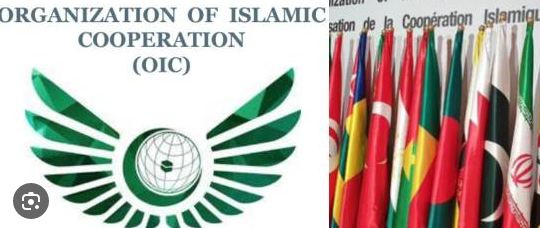The ongoing Israeli attacks on Iran’s nuclear facilities and military infrastructure have sparked global debate and concern—yet from the Organization of Islamic Cooperation (OIC), there has been nothing but deafening silence. This lack of response is not just disappointing—it is alarming. As the second-largest intergovernmental organization after the United Nations, and one that claims to represent the collective voice of the Muslim world, the OIC’s continued silence in the face of blatant aggression against a fellow Muslim nation reflects a deep moral and political failure.
The OIC was established to protect the interests and sovereignty of Muslim countries, yet its actions—or rather, its inaction—reveal a disjointed and increasingly irrelevant alliance. Many of its member states today appear more aligned with Western powers and the United States than with their fellow Muslim nations. This growing detachment from its core objectives has rendered the OIC a passive observer in times when bold leadership is most needed.
What is happening to Iran today cannot be viewed in isolation. If Israel, with the tacit support of the U.S. and the silence of Europe, can launch direct military strikes against Iran without facing condemnation or collective resistance, what is to stop similar actions against any other Muslim country tomorrow? As Pakistan’s Defence Minister Khawaja Asif recently warned in his June 14 address to the National Assembly: “If today it is Iran, tomorrow it may be Pakistan or any other Muslim country.” These are not mere rhetorical flourishes—they are grounded in historical precedent and strategic realities.
The Muslim Ummah must recognize this moment for what it is: a test of unity, sovereignty, and collective resilience. Iran, regardless of differences in sectarian or political viewpoints, remains a crucial member of the Muslim world. To abandon it at this time sets a dangerous precedent that weakens all Muslim nations collectively. The notion that aligning closely with the West will ensure safety or prosperity is a myth. History has shown that alliances of convenience often turn into instruments of subjugation when national interests clash.
The OIC must urgently convene a special session to address the crisis and send a strong, unified message to the international community. It must unequivocally condemn the Israeli attacks, demand accountability, and extend political, diplomatic, and moral support to Iran. Anything less would be a betrayal of its foundational principles and the trust placed in it by over a billion Muslims around the globe.
The time has come for the OIC to rise beyond symbolic statements and routine meetings. It must reclaim its relevance, act decisively, and assert its role as a true representative of the Muslim world. The future security, dignity, and unity of the Ummah may well depend on what the OIC chooses to do—or not do—today.

















